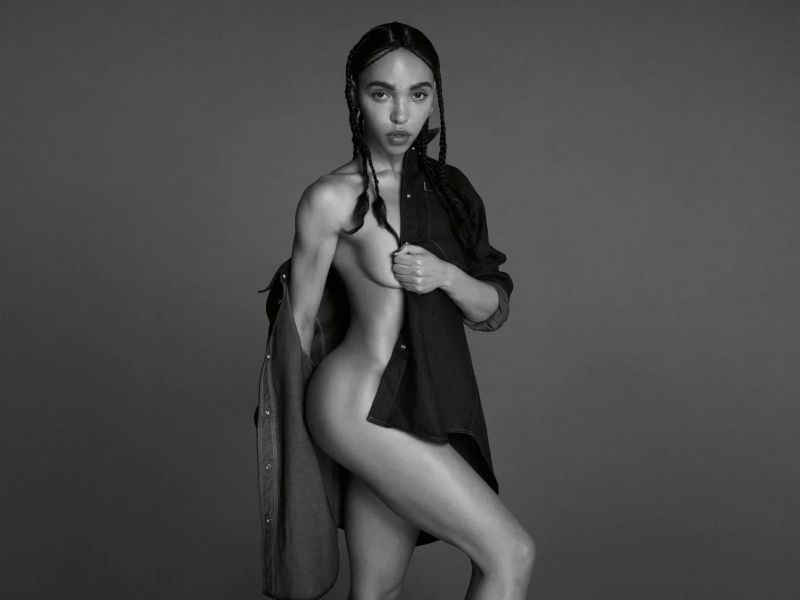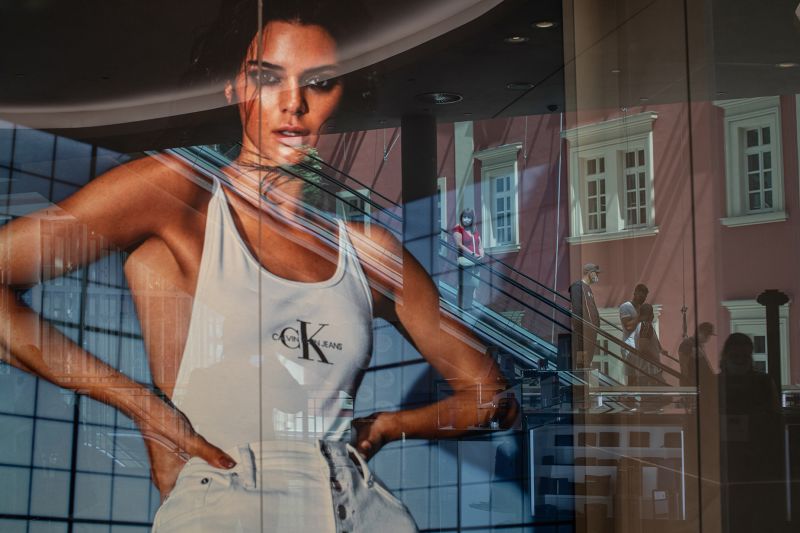
The Provocative Power of Calvin Klein: A Closer Look at the Viral Sensation

Exploring the recent viral sensation surrounding Calvin Klein's advertising campaigns and the impact of their provocative marketing strategies.
The Viral Sensation
Just a few days into 2024, Jeremy Allen White's bare, muscled body — clad in Calvin Klein briefs — became the year's first viral sensation. The brand unveiled the ads on January 4, instantly prompting a swell of online chatter that intensified after the images of the actor were plastered on Calvin Klein's iconic billboard in the center of New York's SoHo neighborhood. Throw in a video ending with a dozen doves bursting into the sky alongside White spread on a couch, wearing nothing but his cotton stretch briefs and sneakers, and the campaign became a full-blown media moment. The strategy was classic Calvin Klein, a brand which has been synonymous with sexy, conversation-starting campaigns since the 1970s.
"I see a strong beautiful woman of color," said the performer FKA Twigs of her 2023 Calvin Klein campaign, following criticism from the UK's Advertising Standards Agency that has, in turn, been widely-criticized.
The data shows it's an approach that works. According to data insights company Launchmetrics, in just 48 hours the White ads generated $12.7 million in media impact value (MIV), a testament to the power of provocative marketing. This success was further highlighted when compared to Bottega Veneta's Pre-Spring 2024 campaign featuring paparazzi shots of Kendall Jenner and A$AP Rocky, which generated $2.8 million in the same time frame.
Controversy and Backlash
The viral sensation surrounding Calvin Klein's advertising took a controversial turn when the UK's Advertising Standards Authority (ASA) banned a Calvin Klein advert starring musician FKA Twigs, stating that the images focused on her 'physical features rather than the clothing, to the extent that it presented her as a stereotypical sexual object.' This decision drew significant backlash, with critics decrying the agency for policing female sexuality and a woman's body. Meanwhile, the ongoing praise for White's ads provided a stark contrast, raising questions about the agency's rulings and the perception of different models in the campaigns.
A Calvin Klein campaign ad featuring Kendall Jenner is seen inside the Palladium Praha shopping mall in Prague, Czech Republic, on May 18, 2020.
In response to the ruling, FKA Twigs issued a statement on Instagram, challenging the 'stereotypical sexual object' label and asserting her identity as a strong, beautiful woman of color. Calvin Klein defended its advertising approach, citing its long history of using provocative imagery to sell its mass market staples. The brand's ads have often courted controversy, from featuring topless models to banned perfume ads, yet the recent success of the White ads demonstrates the enduring power of provocation in marketing.
The Power of Provocation
Calvin Klein's recent viral campaigns highlight the enduring power of provocation in advertising. The brand has a history of using controversial and conversation-starting imagery, with past ads featuring topless models, innuendos, and provocative visuals. While the industry has become more cautious with advertising, Calvin Klein's recent brush with virality demonstrates that the right kind of provocation can still pay dividends for a brand's image.
Justin Bieber's Calvin Klein campaign — pictured here in on a billboard in New York's NoHo neighborhood in May 2016 — served as part of an image overhaul for the popstar.
The controversy surrounding the FKA Twigs advertisement and the contrasting reception of White's ads also shed light on societal attitudes towards female sexuality and body image. The ASA's ruling and the subsequent backlash highlight the ongoing conversation around gender, race, and representation in advertising. Calvin Klein's ability to ignite cultural conversations through its advertising campaigns reaffirms the adage that there's no such thing as bad publicity, as the brand continues to navigate the delicate balance between provocation and public acceptability.
















